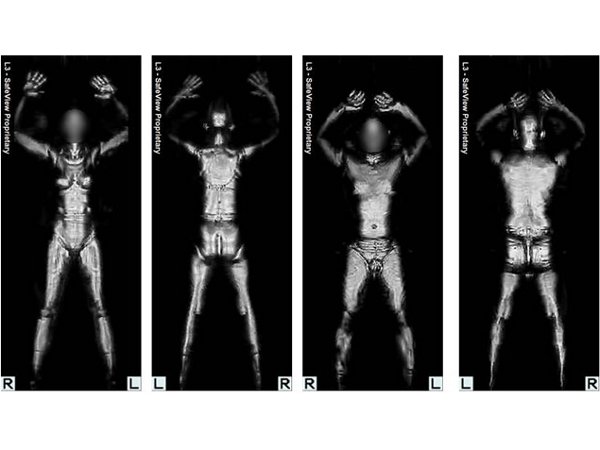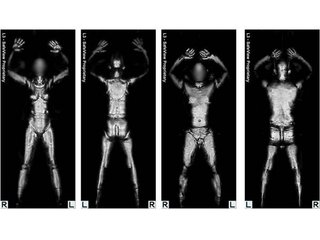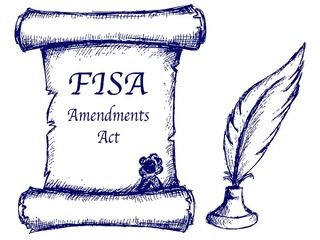
A collective “eeeeeek…” went out across the nation last week when reports emerged detailing the NSA’s broad-sweeping, untargeted surveillance program PRISM and its collection of ALL Verizon subscribers’ call records. It’s a little skeeze-ballish, to be clear, but as more information has come out regarding the NSA’s surveillance activity, it’s put some minds to rest. The collection of Verizon’s call records is just meta-data—it doesn’t include content. And when it comes to Internet and email surveillance, officials and even President Obama insist that it only applies to those outside the U.S. (in other words: “it’s okay! They’re just foreigners! Chillax, bro!”).
While the surveillance program is a little bit better than that of the Bush administration’s unlawful wire-tapping and email surveillance, many are still troubled by the idea that the U.S. government could have such a wide-ranging, all-encompassing surveillance program that’s been kept totally under the radar.
I can’t make you feel better about that. But I can make you feel worse about other things. So, here I give you five technological intrusions that are worse than the NSA’s programs.
1) Upskirt and downblouse photos. They’re exactly what they sound like: photos taken down the blouses or up the skirts of unsuspecting women. And they’re totally legal. It’s a big business: plenty of websites cater to people who are particularly turned on by creepshots. Reddit is infested with Upskirt photos—many of which are staged, but it was taken to a whole new level of creepy with the creation of the subreddit r/creepshots, which has since been banned to the dismay of many. There’s also the equally creepy, not-yet-banned subreddit r/girlsinyogapants, which also features the images of non-consenting women.
And guess what, you guys: it’s totally,100% legal. In 2004, Congress passed the Video Voyeurism Prevention Act, which is meant to prohibit photographing or video recording images of another person’s “private areas” (naked or clothed genitals or the naked female breast) in areas of expected privacy or public places where a person does not expect her breasts or genitals to be seen. Turns out: this is really vague and difficult to prosecute, because if you’re in public, whatever part of you that’s visible to the naked eye is free to be photographed and disseminated online. So if you’re a woman walking around in yoga pants or a 14-year-old girl walking through a grocery store in shorts, you were essentially “asking for it,” and if you later find a picture of yourself on Creepshots.com or some other nasty-ass website/subreddit, you have zero legal recourse to have it removed.
2) TSA full-body scanners. The good news is that Congress gave the TSA a deadline for purging all U.S. airports of the creeptastic nude body scanners—the ones that create a very graphic, detailed image of the passenger’s nude body for the $8-an-hour TSA agent to gawk at. The TSA ended up removing all of the machines shortly before the June 1 deadline. The bad news: they’re still using body scanners, just scanners that are using a different technology. Rather than relying on back-scatter technology to create nauseatingly accurate and precise images, the TSA is now using millimeter wave technology, which previously created the same ultra-detailed images, but has since been upgraded so that the TSA agent who’s screening you only sees a cartoonish outline of your body and any prohibited items you might be concealing. The thing is: a naked picture is still being taken of your body. The agent in front of you might not see it, but the image is still being created—and questions remain as to whether the machine is retaining those images.
Meanwhile, TSA chief John Pistole still backs a plan that would allow passengers to carry small knives onto a plane.
Yep.
3) While we’re on the subject of the TSA, let’s include pat-downs here. Recently, a 27-year-old Ph.D. student named Ashley Jessica posted a video on YouTube that revealed her very invasive pat-down at an airport in San Diego after she opted out of the nude body scanner. The video shows the female TSA agent swiping the tops and sides of Ashley’s breasts, and then running a hand in between them. Ashley protests and asks the agent not to touch her breasts anymore. The agent later runs her hands up Ashley’s leg and cups her crotch, causing Ashley to jump back. To make matters worse, all of this is done in plain view of every other passenger going through security.
Of course, she’s not the only one who’s been subjected to groping and fondling at the airport. There are plenty of other horror stories that include everyone from old people wearing catheter bags to disabled children left crying from being patted down. In conclusion, f*ck the TSA.
4) Revenge porn—also called non-consensual porn. “Non-consensual? By Jove! Surely that’s illegal!” you say. Nope. NOPENOPENOPE. Revenge porn—the publication and dissemination of nude photos and intimate videos (usually by bitter exes) without the subject’s consent is totally, 100% legal. The worst part is that sites like the recently shut down IsAnyoneUp.com not only post the images and videos, but include the victim’s name, Facebook profile, place of work, and more. If a victim asks for the image to be removed, she (because the vast, VAST majority of the victims are women) is either disregarded or told to pay a fee to have the picture removed. Recently, revenge porn site UGotPosted.com was slapped with a child pornography lawsuit for refusing to remove a sexually explicit picture of a 14-year-old girl.
While revenge porn pioneer Hunter Moore shut down his controversial site IsAnyoneUp.com, his new site—HunterMoore.tv—is sure to be just as bad, if not worse, as Moore has promised that the new site will not only include non-consensual pornography, but home addresses and mapping features as well. And he claims he’s well within his legal rights to do so because it’s all user-submitted content. AWESOME SAUCE.
California State Senator Anthony Cannella introduced legislation last week that would make it illegal to distribute sexually explicit images or videos without the subject’s consent. It’s already facing an uphill battle with the ACLU and EFF, who are worried about the legislation infringing upon first amendment rights. Similarly legislation was also recently debated in Florida, but failed to make it into law.
5) Security cameras f*cking everywhere! There’s the commonly known statistic that the average person is caught on surveillance cameras 200 times a day. That kind of freaks me out more than the NSA seeing how often I avoid my mother’s phone calls in a given week. There have been lots of “Big Brother” references over the NSA surveillance news, but ultimately, YOU ARE BEING WATCHED. ALL. THE. TIME. Google was pretty quick to put the kibosh on Google Glass apps that utilize face recognition technology, so that puts a slightly positive spin on things, but it seems like a pretty inevitable progression. It’s only a matter of time… Here’s a delightful little nugget of info you probably didn’t want: only 13 states have made it illegal to install surveillance cameras in “private” areas, like fitting rooms, hotels, bathrooms, and locker rooms. That includes Alabama, Arkansas, California, Delaware, Georgia, Hawaii, Kansas, Maine, Minnesota, Michigan, New Hampshire, South Dakota, and Utah. Think about that.






















